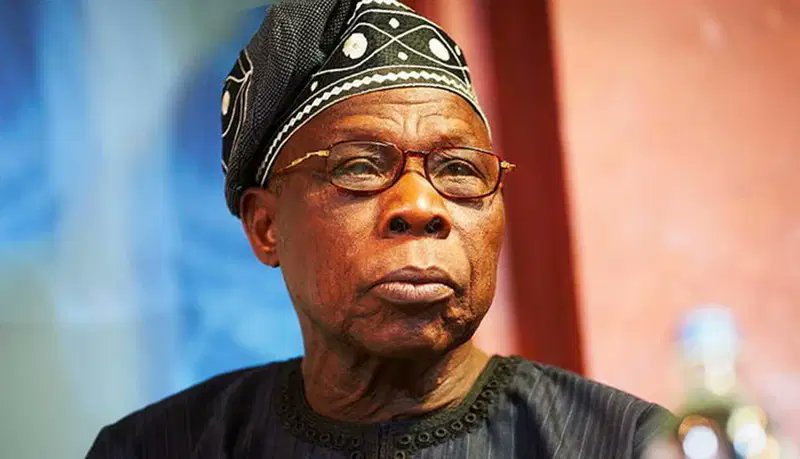National
Obasanjo Says Nigerians Have No Business Being Poor Given Nation’s Vast Resources

Former President Olusegun Obasanjo has stated that Nigerians should not be living in poverty considering the wealth of natural and human resources available in the country. He made this assertion during a public engagement where he addressed the persistent challenges facing Nigeria’s economy and governance.
Speaking candidly, Obasanjo expressed concern over the rising levels of poverty across the country, describing it as a contradiction in light of Nigeria’s abundant resources. He emphasized that with effective leadership, strategic planning, and accountability, Nigeria has the potential to provide a high standard of living for all its citizens.
According to the former president, it is unacceptable that a country so richly endowed with oil, gas, solid minerals, arable land, and a youthful population continues to grapple with extreme poverty and underdevelopment. He attributed the situation to mismanagement, corruption, and poor governance over the years.
Obasanjo stated that the persistent failure to harness the nation’s resources for the benefit of its citizens is a major concern that must be urgently addressed. He argued that the level of poverty in Nigeria is not a result of scarcity but rather the failure of successive governments to deploy the country’s assets for sustainable development and inclusive growth.
The former president pointed out that Nigeria’s wealth has often been misused or diverted for personal gain, leaving the masses to suffer the consequences. He challenged current and future leaders to adopt policies that are people-centered and focused on reducing inequality, creating jobs, and ensuring access to education, healthcare, and infrastructure.
He stressed that unless the country confronts the root causes of poverty—including corruption, bad governance, and a lack of political will—millions of Nigerians will continue to live below the poverty line despite the country’s immense potential.
Obasanjo also highlighted the importance of leadership at all levels, calling on public office holders to prioritize the welfare of citizens over personal or political interests. He urged young Nigerians to become more actively involved in the political process and to demand greater accountability from those in power.
His comments come at a time when Nigeria is facing serious economic challenges, including inflation, high unemployment, and a depreciating currency. Reports from national and international financial bodies indicate that poverty rates are rising, with millions of Nigerians unable to meet basic living standards.
Obasanjo’s remarks have sparked widespread reactions from both the public and political analysts. Many agreed with his statement, noting that Nigeria’s potential remains largely untapped due to systemic issues. Others called for more action and fewer words, pointing out that the problems he identified have persisted across different administrations, including his own.
The former president, who led Nigeria both as a military ruler and a civilian leader, has remained an influential voice in national discourse. He often speaks out on matters concerning development, unity, and leadership, and continues to advocate for reforms aimed at building a more equitable society.
As Nigeria continues to seek solutions to its socio-economic challenges, Obasanjo’s comments have reignited debates about governance, resource management, and the urgent need to translate the country’s wealth into improved living conditions for its people.

